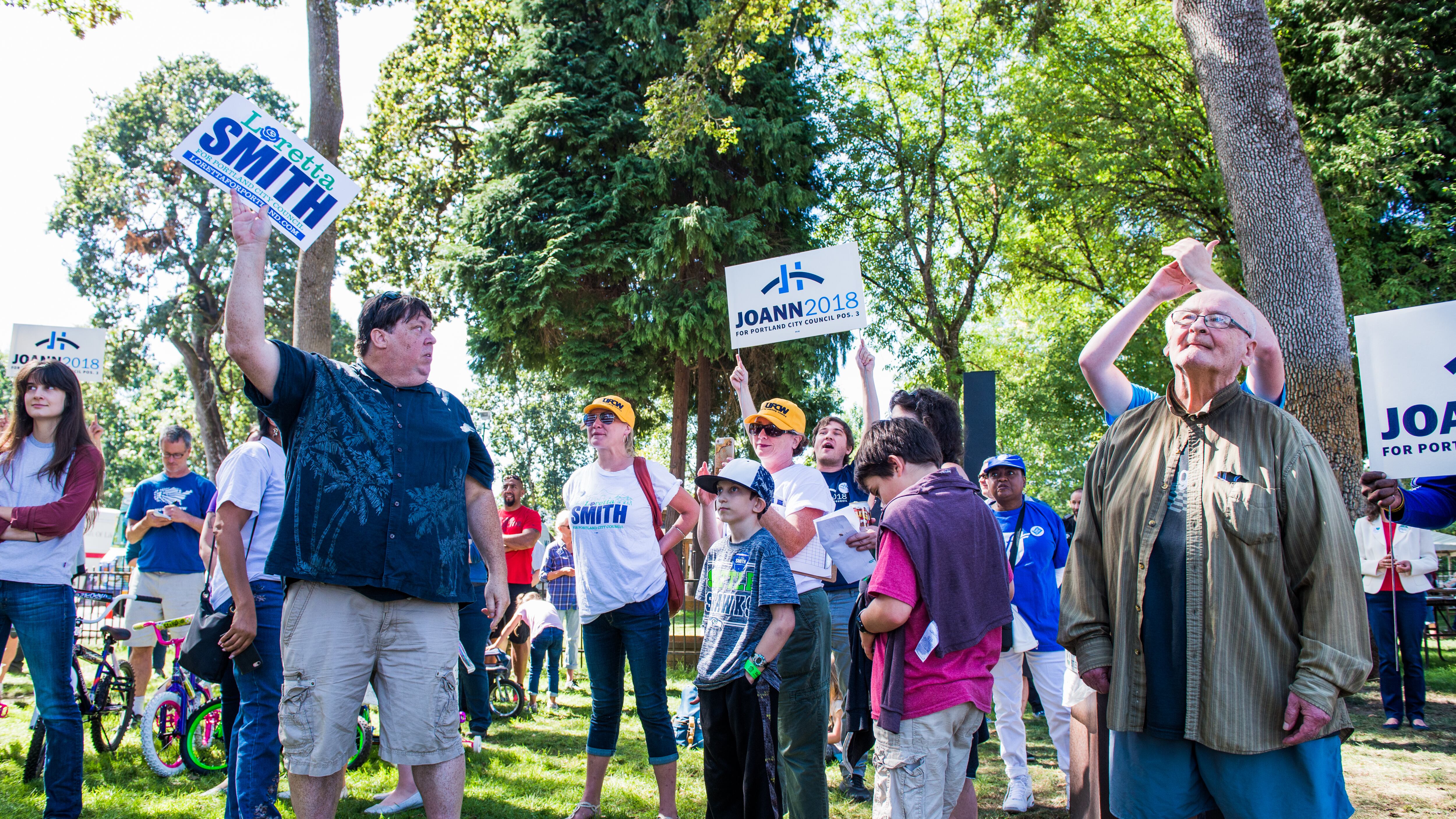Voters in future city of Portland candidate elections will get a higher degree of disclosure from campaigns thanks to a ruling this week from Multnomah County Circuit Court Judge Eric Bloch.
In 2018, Portland voters overwhelmingly approved a slate of campaign finance reforms proposed by the group Honest Elections Oregon. Those reforms would limit campaign contributions, which are currently unlimited in Oregon; limit campaign expenditures (also unlimited); require that groups making independent expenditures over $750 register as political committees; and require, as many other cities and states do, a disclosure on candidate campaign advertising of who contributed money to pay for the ads.
Oregon's Constitution includes broad free speech rights and Oregon courts have previously ruled that efforts to limit campaign spending violates constitutional rights to free speech. So instead of implementing the campaign finance reform measures, the city of Portland sought guidance from the Multnomah County Circuit Court in what's called a "validation proceeding."
(Multnomah County took the same step in 2017, after voters approved a similar slate of reforms the Honest Elections put forth for county elections.)
On June 10, Bloch issued a ruling on whether the Honest Elections measures comply with the Oregon Constitution.
Bloch found that the attempts to limit contributions and spending do in fact violate the constitution. But he ruled in favor of the reformers on two key points: He upheld the requirement that groups making independent expenditures over $750 register as political committees and that candidates disclose the largest five donors responsible for a political ad.
Honest Elections Oregon cheered Judge Bloch's ruling, particularly on the issue of political advertising.
"This is the most complete `tagline' requirement in the nation," said Jason Kafoury, a spokesperson for Honest Elections Oregon, the group that drafted the measure and put it on the November 2018 ballot. "This will allow Oregon voters to evaluate the credibility of political ads by knowing who paid for them," added Liz Trojan, a chief petitioners on the measure.

